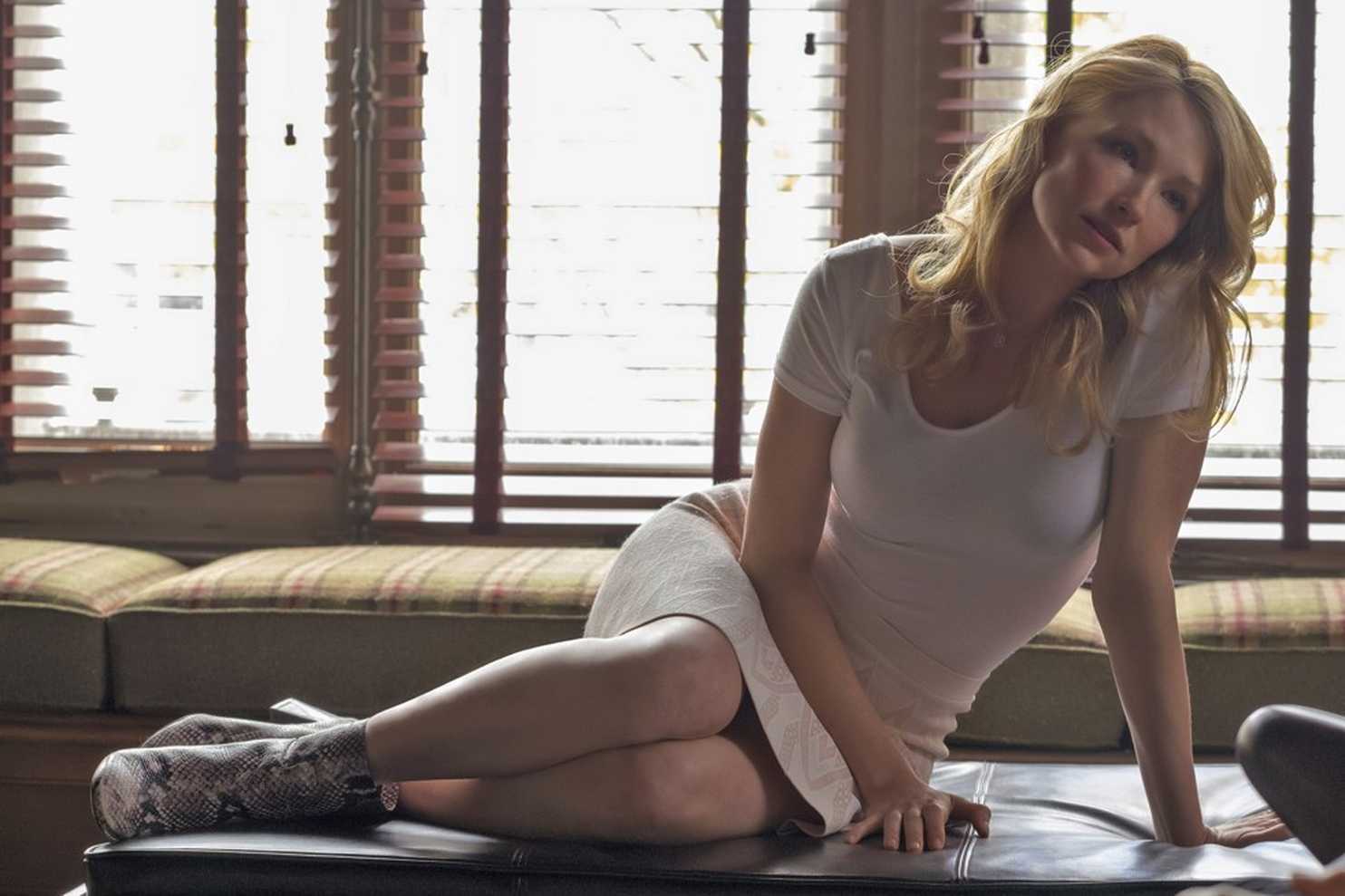
This is a silver screen adaptation of the titular bestselling mystery novel by Paula Hawkins, who has also authored more similar titles such as Into the Water and the forthcoming A Slow Fire Burning which is expected to be published on August 31st, 2021 by Doubleday. Though the film stays loyal to both the basic plot premise and narrative structure of the novel, some minor differences separate them. First of all, the book's setting is London while the movie takes place in New York, the protagonist, Rachel Watson, is much more damaged in the book than in the film, some characters have a much more significant role in Paula Hawkins's fictional universe than in Tate Taylor's adaptation and some other discrepancies that set the movie apart from the novel. Nevertheless, Erin Cressida Wilson (Chloe, Secretary) who wrote the screenplay succeeds in retaining the original source's mood and atmosphere, stressing the importance of the main characters' often irrational, erratic behavior that moves the story forward and keeps the audience engaged throughout the movie's runtime. The Girl on the Train features a strong cast with Emily Blunt (The Devil Wears Prada, Edge of Tomorrow), Rebecca Ferguson (Snowman, Doctor Sleep), Haley Bennett (The Magnificent Seven, Music and Lyrics), and Justin Theroux (Mulholland Drive, American Psycho). Blunt gives an outstanding performance as Rachel, a troubled woman who has a severe drinking problem and spends her time stalking her ex-husband, Tom (J. Theroux), and his new wife, Anna (R. Ferguson). Haley Bennett's striking presence shines in her portrayal of Megan, an equally tormented female soul, whose disappearance constitutes the movie's great mystery.
Rachel is a young woman whose life turned upside down when her husband, Tom, abandoned her and chose to live with his lover, Anna, who soon gets pregnant. After losing her job, due to her alcoholism, Rachel has nothing else to do but to commute every day to New York by train. Each day, she passes by her old house where Tom lives now along with Anna and their baby girl, Eve. Trying to fight the jealousy and pain that plagues her, she gets obsessed with another young couple living a few houses down: Megan and Scot Hipwell (Luke Evans). Rachel creates an idyllic picture of the couple, imagining only the best for both of them and their life together. When, one day, Rachel witnesses a suspicious kiss between Megan and an unknown man on the porch of her house, she becomes livid with rage as the picture of the perfect family gets cracked once and for all. The sight of Megan's betrayal will lead Rachel to a drinking binge that will render her unconscious at the end of the day. The day after, the police arrive at her house in order to ask her about Megan, who has disappeared without a trace. Rachel is certain that she has seen something the night before, but she can't remember a single thing as she suffered a complete blackout. She will have to put the fragments of her memory in order, to make sense of what had happened. The only thing she doesn't know is that the truth about what happened to Megan will affect her personally in ways that she can't even fathom.
We watch the story unravel in an unconventional, non-linear format, through the eyes of the three female protagonists: Rachel, Megan, and Anna. The narration jumps back and forth in time, with many flashbacks and flashforwards that create a rather jumbled feeling to the audience, especially during the first half of the film. The narrative structure is adopted from the book but makes much less sense on the screen than on the page. The story is multi-layered and each narrative segment, corresponding to one of the three main characters is supposed to peel back an additional layer to the story. Nevertheless, the individual stories are not balanced and this uneven feeling is all the more evident as Rachel's perspective is undoubtedly dominant while Anna's is almost non-existent. In the last 30 minutes, the story becomes clearer and the final twist is nice, though a bit conventional, particularly for the fans of the genre.
Overall, I would say that The Girl on the Train is an enjoyable mystery/thriller that has its flaws, nevertheless, wins the audiences' hearts mainly due to the great performances and dark cinematography that is reminiscent of David Lynch's work. It's a fit choice for the genre's aficionados who wish to spend a couple of entertaining hours in front of the screen and those who haven't read Paula Hawkins's novel will be surprised by the film's unorthodox narrative pattern. If you enjoyed David Fincher's Gone Girl, another splendid cinema adaptation of Gillian Flynn's titular novel that used similar narrative tropes, then you should give The Girl on the Train a chance, always keeping in mind that the two movies are not of equal stature.